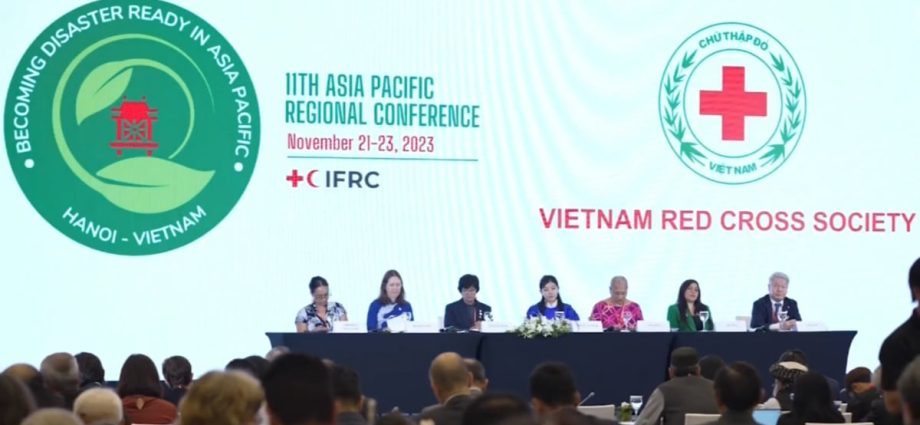
ISRAEL-HAMAS WAR
The Israel-Hamas conflict, into its seventh week, has displaced more than 1.7 million people in the Gaza Strip, according to the United Nations’ children’s agency UNICEF.
Multiple aid organisations, including the IFRC, have renewed calls for an extended humanitarian ceasefire and pleaded for desperately needed aid to be allowed unimpeded into the devastated enclave.
“(We) express deep concern about the protracted crisis in the Middle East and express solidarity with Palestinian Red Crescent Society and Magen David Adom,” said Tunku Puteri Intan Safinaz, chairwoman of the Malaysian Red Crescent Society, in a statement at the conclusion of the conference. Magen David Adom is Israel’s national emergency medical, disaster, ambulance and blood bank service.
Dr Hossam Elsharkawi, IFRC’s regional director for Middle East and North Africa, also read to delegates the organisation’s recommendations regarding developments in Gaza.
“Endorsing the truce is insufficient. We must actively call for a permanent ceasefire,” he said.
“It is crucial to issue a statement condemning the violations and denouncing atrocities, specifically the deliberate targeting of civilians, medical personnel and hospitals,” he said.
Other recommendations include advocating for additional access points to Gaza, avoiding forcing people to leave their homes in population transfer scenarios, and providing support to the Palestinian Red Crescent.
The aid network said that civilians are paying the “highest price” in the hostilities, and has called on all parties to allow humanitarian organisations to safely access and support those impacted by the crisis.
Delegates said the conflicts in Gaza and Ukraine take away huge amounts of attention and resources from programmes on climate action.
“The biggest challenge is that we have more and more diversified types of humanitarian crises,” said Mr Ma Wenbo, a representative from the Red Cross Society of China.
“We have natural disasters, and we also have man-made ones like war, armed conflicts, etc., which is stretching our resources.”
CLIMATE RISKS
Even as these conflicts divert public attention, the IFRC highlighted the need for the region to guard against growing climate risks.
Delegates at the conference agreed on a call for action for Asia Pacific, which is the world’s most disaster-prone area.
Nearly 45 per cent of the world’s natural disasters occur in Asia and the Pacific, and more than 75 per cent of those affected live within the region, according to the UN.

